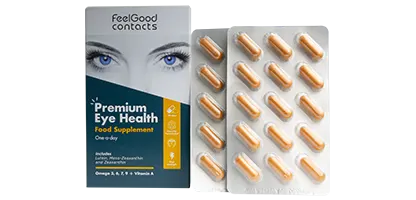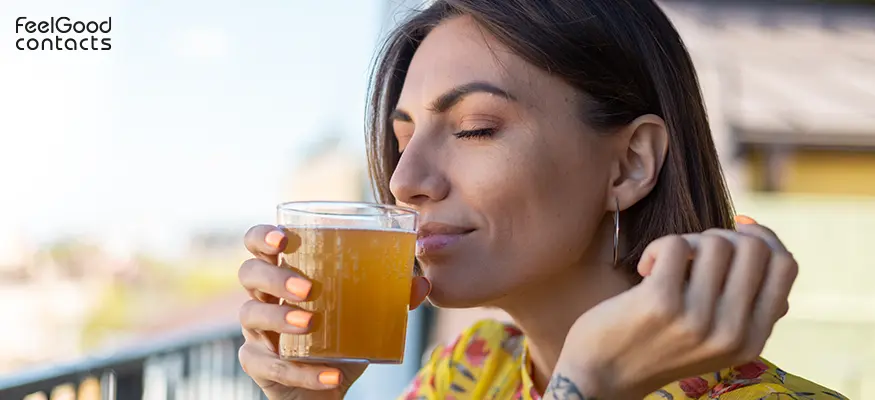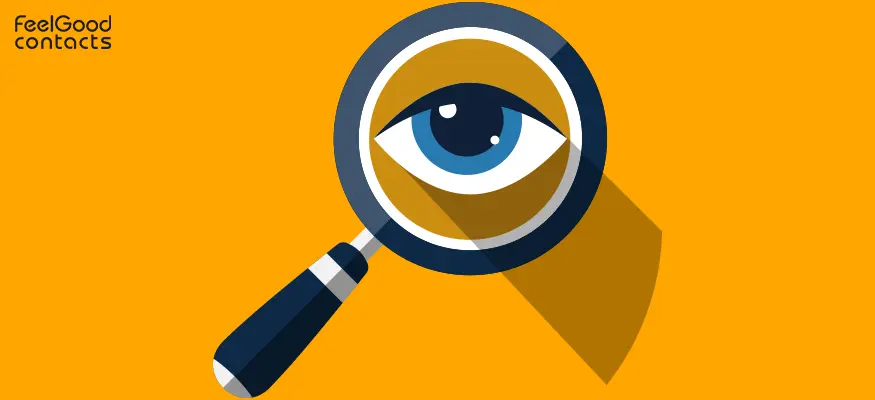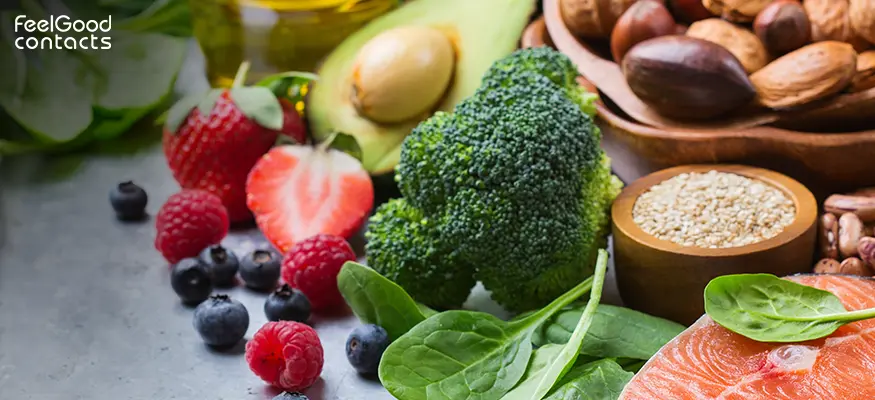In addition to this, there are plenty of health benefits to going vegan – including better eye health. Read below to learn more.
What are the symptoms of poor nutrition in the eyes?
According to research published by the Journal of Family Medicine and Primary Care, a diet consisting of unhealthy fats and cholesterol-rich foods can increase the likelihood of developing eye diseases sooner.
Macular degeneration, in particular, is an eye condition linked to a poor diet because saturated fats, which are commonly found in red meat, fried/junk foods, and dairy products, can cause a blockage in the blood vessels that supply the eyes.
Poor nutrition in the eyes does not always show visible signs, which is why it is important to get your eyes tested at least every two years and if you notice any visual changes.
What is the best vegan food for eye health?
If you’re thinking of switching to a vegan diet, you’ll want to watch out for overly processed foods, such as meat substitutes, as these are often filled with high levels of sodium. The best vegan foods, especially for eye health, are usually plant-based and whole foods.
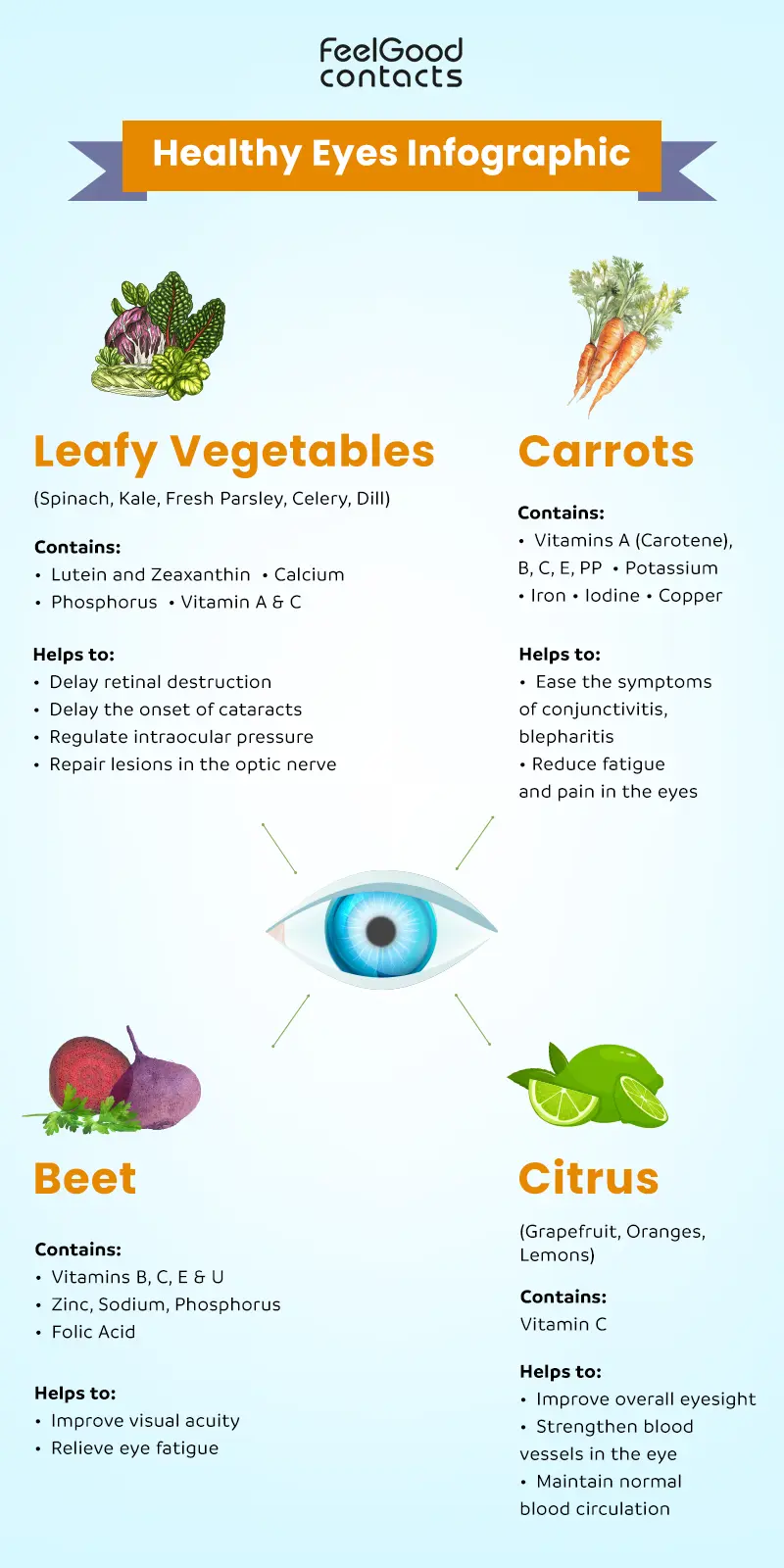
A vegan diet that mainly consists of fruit and vegetables promotes healthy vision and overall health. Vegan foods that can help protect eyesight include:
Can a vegan diet improve dry eye disease?
As the name suggests, dry eyes is a condition caused by a lack of hydration in the eyes. When the eyes do not produce enough tears, or tears evaporate too quickly, they may become sore and irritated.
Fruits and vegetables, in particular, are rich sources of hydration, and it has been scientifically proven that staying hydrated can ease the symptoms of dry eyes. Here are some fruits to incorporate into your diet to help with hydration:
Do vegans have fewer cataracts?
Cataracts is one of the leading causes of vision loss. While cataract surgery is the only treatment, a healthy, balanced diet is encouraged to delay the onset.
Some studies suggest that a diet that consists of fruits, vegetables, nuts, and whole grains can reduce the risk of cataracts by 30%, while meat consumers are 46% more likely to develop the eye condition.
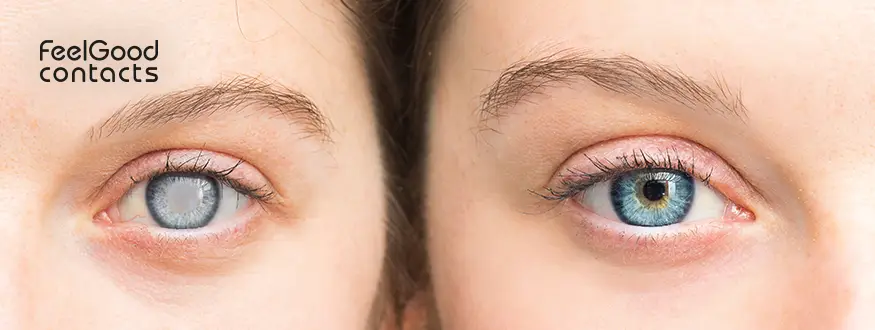
Overall, there is not enough evidence to suggest that vegans have fewer cataracts.
Can a vegan diet help macular degeneration?
Eating a nutrient-dense diet can help slow down the development of macular degeneration (AMD), so you should get as much vitamin C, vitamin E, zinc and omega 3 in your diet as possible.
Lutein and zeaxanthin are just a few of the nutrients that you should be incorporating into your diet to hold off macular degeneration for a bit longer. These can be found in foods such as:
More ways to promote good eye health
A plant-based diet is one way to improve your eye health, but it doesn’t end there. Here at Feel Good Contacts, we have a range of supplements that go hand in hand with a balanced diet, here is one of our customer favourites:
Additionally, we stock a wide range of contact lenses, glasses, sunglasses, prescription glasses, eye care and more.
Disclaimer: The advice and suggestions in this blog are for informational purposes only and are not a substitute for medical care. Before trying any products or remedies, consult with an eye care professional. See our Editorial Policy for details on how we review our blog.
















